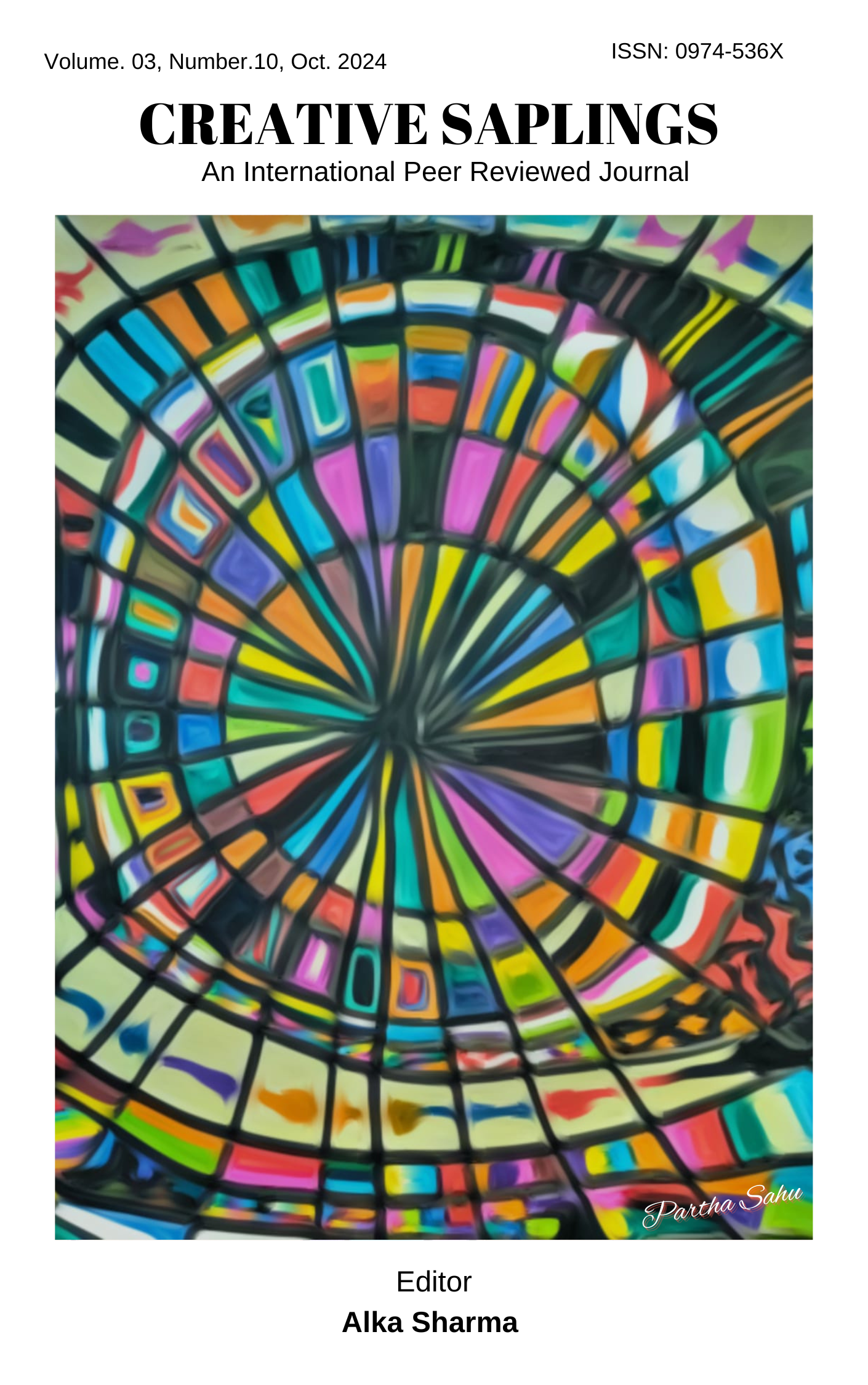Portrayal of Selected African Dialects and Accents in The Woman King
DOI:
https://doi.org/10.56062/Keywords:
Language; Dialect; Accent in Films; The Woman King Movie; Character Portrayal in Film.Abstract
This study aims to examine the portrayal of selected African dialects and accents in The Woman King, a Hollywood film by mainly African actors. Directors, dialect, and accent coaches view these tools as vital in the overall development of screen productions in an educative and informative manner, harmonizing the character’s cultural, emotional, physiological, and psychological as they align with dialogue, identity, language, and idiolect. The study purposively selected actors in The Woman King through a content analysis lens. The data was collected through a qualitative and quantitative research method, including published interviews, audience member observations, and documentation analysis for data collection. The data were analyzed using thematic analysis, guided by key concepts such as dialect and accent in character portrayal, cultural representation, and audience perception. The findings revealed that dialect and accent are potent tools for authenticity, cultural representation, and audience engagement. In the movie, dialect and accent take away from the depth and complexity of characters, create a realistic setting, challenge stereotypes, and empower marginalized communities. The content analyzed and audience response highlight the consistency and inconsistency of dialect and accent, appreciating their contributions to the immersive, embodied, and emotional experience as professional actors. The study concluded that language, dialect, and accent must play significant roles in film productions with specificity and without stereotypes, enhancing their artistic quality and representation as long as the casts, dialect, and accent coaches. The director can achieve believability and intelligibility in the target accents of the specific production.
Downloads
References
Abodunrin, Olufemi J., and Ogungbemi Christopher Akinola. “Nollywood as an Agent of African Culture and Identity.” Nollywood in Glocal Perspective, 2019, pp. 87-100.
Adedun, Emmanuel Adedayo. “The Sociolinguistics of a Nollywood Movie.” Journal of Global Analysis, vol. 1, no. 2, 2010.
Aeni, Nur, Like Raskova Octaberlina, and Nenni Dwi Aprianti Lubis. “A Literature Review of English Language Variation on Sociolinguistics.” 2021.
Biadsy, Fadi. Automatic Dialect and Accent Recognition and Its Application to Speech Recognition. Columbia University, 2011.
Bleichenbacher, Lukas. Multilingualism in the Movies: Hollywood Characters and Their Language Choices. Vol. 135, BoD–Books on Demand, 2008.
Coronel, Joy Lanceta, Jacqueline Springfield, and Joshua Feliciano-Sanchez Moser. “Strategies for Guiding Actors’ Accent and Linguistic Needs in the Twenty-First Century.” Voice and Speech Review, vol. 14, no. 2, 2020, pp. 196-212.
Pourhosein Gilakjani, Abbas, Ehsan Namaziandost, and Meisam Ziafar. “A Survey Study of Factors Influencing Iranian EFL Learners’ English Pronunciation Learning.” International Journal of Research in English Education, vol. 5, no. 2, 2020, pp. 103-123.
Holsen, Vemund. A “Whole” New World of Accents: A Societal Treatment Study of Accent Use and Stereotyping in Disney’s Originals and Remakes. MS thesis, University of Bergen, 2024.
Horsthemke, Fiona Ramsay. Giving Voice to Mandela: An Analysis of Accent Acquisition Intervention for the Role of Nelson Mandela in the Film Mandela: Long Walk to Freedom: A Case Study. Diss., University of the Witwatersrand, Faculty of Humanities, 2014.
Juma, Muayyed J. “Developing English Pronunciation through Animation and YouTube Videos.” Arab World English Journal (AWEJ), vol. 12, 2022.
Levis, John M., and Shannon McCrocklin. “Reflective and Effective Teaching of Pronunciation.” Issues in Applying SLA Theories Toward Reflective and Effective Teaching, Brill, 2018, pp. 77-89.
Li, Bo, et al. “Multi-Dialect Speech Recognition with a Single Sequence-to-Sequence Model.” 2018 IEEE International Conference on Acoustics, Speech and Signal Processing (ICASSP), IEEE, 2018.
Massai, Sonia. Shakespeare’s Accents: Voicing Identity in Performance. Cambridge University Press, 2020.
Mazibuko, Zoleka Z. Z. “The Woman King Is More Nuanced than You Think.” Eyala, 5 Oct. 2022, eyala.blog/my-musings/2022/10/5/the-woman-king-is-more-nuanced-than-you-think-zoleka-mazibuko-zimbabwe. Accessed 24 June 2023.
McGuire, Beth. African Accents: A Workbook for Actors. Routledge, 2016.
Mellyana, Intan, Ikhsanudin Ikhsanudin, and Wardah Wardah. “The Effect of ‘Harry Potter and the Philosopher’s Stone’ Movie in Students’ British Accent Pronunciation.” English Learning Innovation, vol. 5, no. 2, 2024, pp. 251-263.
Munro, Murray J. “How Well Can We Predict Second Language Learners’ Pronunciation Difficulties?” CATESOL Journal, vol. 30, no. 1, 2018, pp. 267-281.
Nwajiaku, N. V. “The Woman King’ Review: Revisionist History in an Otherwise Excellent Hollywood African Historical Epic.” Afrocritik, 21 Nov. 2022, www.afrocritik.com/the-woman-king-review/. Accessed 22 June 2023.
Nzeribe, A. “Review: The Woman King.” The Floor Mag, 11 Oct. 2022, www.thefloormag.com/post/the-woman-king. Accessed 22 June 2023.
Oladipupo, Rotimi, and Elizabeth Akinfenwa. “Educated Nollywood Artistes’ Accent as a Normative Standard of English Pronunciation in Nigeria: Analysis of the Phonemic Realisation of Educated Nollywood Artistes.” English Today, vol. 39, no. 3, 2023, pp. 207-217.
Rittmayer, Allison M. “Translation and Film: Slang, Dialects, Accents and Multiple Languages.” Comparative Humanities Review, vol. 3, no. 1, 2009, pp. 1.
Sanjadireja, Roki Ranjani. “Subtitle in Teaching Pronunciation with Video.” IJET (Indonesian Journal of English Teaching), vol. 9, no. 1, 2020, pp. 67-85.
Sapir, Edward. An Introduction to the Study of Speech. Language, vol. 1, 1921, pp. 15.
Wanner, Z. “Why Should Nelson Mandela Be Played by a South African Actor?” The Guardian, 20 Mar. 2012, amp.theguardian.com/commentisfree/2012/mar/20/nelson-mandela-south-african-actor-idris-elba. Accessed 24 June 2023.
Yao, Shun. “Dialects into Films—The Element of ‘Dialect’ in Chinese Films.” 2013.
Zabalbeascoa, Patrick. “Some Observations on British Accent Stereotypes in Hollywood-Style Films.” The Dialects of British English in Fictional Texts, Routledge, 2021, pp. 133-149.
Filmography
Chadwick, Justin, director. Mandela: Long Walk to Freedom. 20th Century Studios, United International Pictures, 2013.
Eastwood, Clint, director. Invictus. Warner Bros., Warner Bros. Pictures, Warner Bros. Entertainment France, 2009.
Prince-Bythewood, Gina, director. The Woman King. TriStar Pictures and Entertainment One, 2022.
Roodt, Darrell, director. Winnie Mandela. RLJE Films, 2011.
Downloads
Published
Issue
Section
License

This work is licensed under a Creative Commons Attribution-NonCommercial 4.0 International License.









